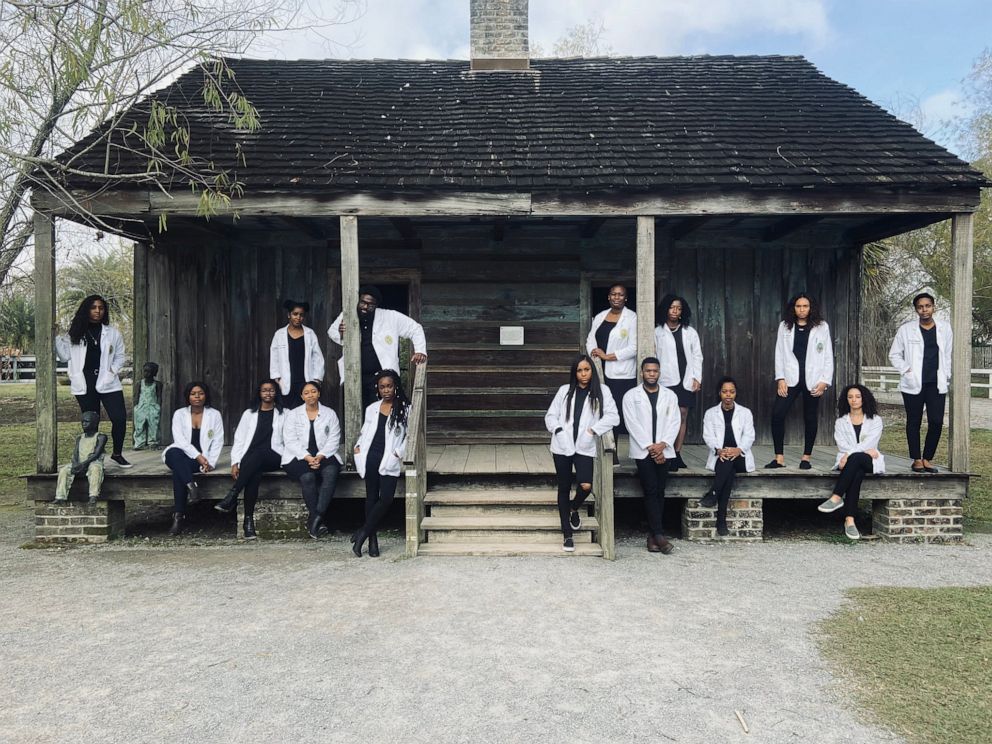15 medical students pose in front of slave quarters at plantation in powerful photo
"We would not be here without the strength and determination of those enslaved."
A photo showing a group of medical students standing in front of the slave quarters at a Louisiana plantation is getting love from thousands on Twitter.
Sydney Labat, 24, shared the image on Dec. 14 after she and 14 of her Tulane University classmates posed at the Whitney Plantation in Wallace. The picture was liked nearly 50,000 times.
The Whitney Plantation is a museum in Wallace, Louisiana, which focuses on sharing the histories of enslaved African Americans instead of the wealthy families who owned them, Labat told "Good Morning America."
"I think I speak for myself and my classmates that it was an extremely humbling experience to say the least," Labat said. "We would not be here without the strength and determination of those enslaved and their strength to live and to press on."
"It was incredibly unifying," she added. "We all have our own stories, but we can all relate and feel the power in this space," she added. "Hopefully that resonated when other people saw it."
Russell Ledet, a second-year med student at Tulane, also appeared in the photo.
"The idea of the photo was to illustrate our presence essentially, and the history behind where we are today," Ledet, 33, told "GMA."
The 15 participants wore jackets from the white coat ceremony which stops at the waist, signifying they are medical students, Labat explained.

Once they graduate, each person will receive a longer white coat.
"[I'm] empowered to be with my classmates in the photo," student Doyin Johnson told "GMA."
Labat said she credits her ancestors' resilience for her ability to pursue an education.



